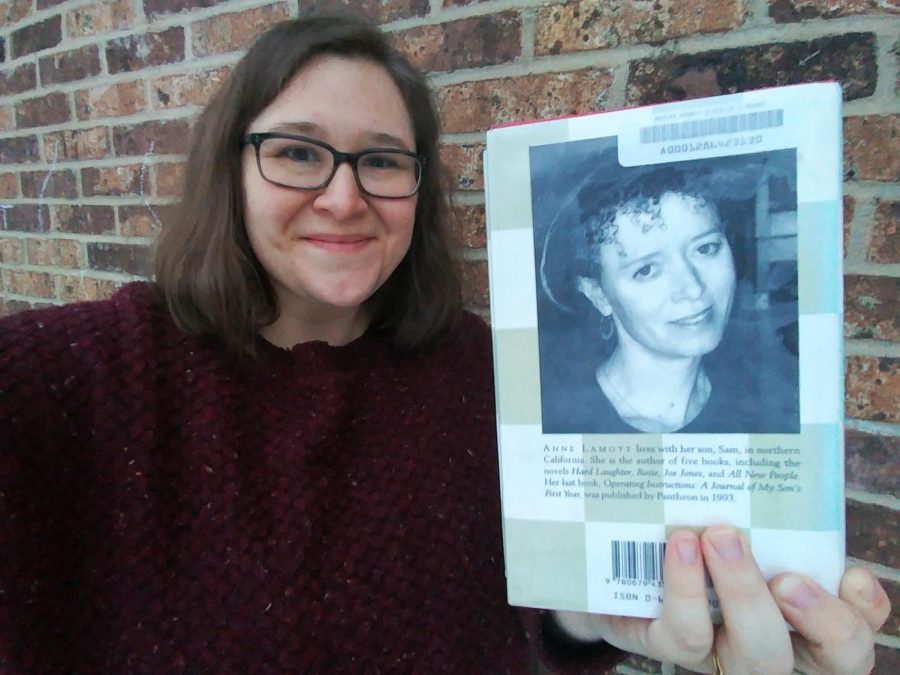OPINION: Leave politics out of this? No thanks.
February 10, 2021
I didn’t used to be a political person.
Ten years ago, as an undergraduate in college, I idolized the author Anne Lamott for her writing about spirituality. I bristled, however, any time she veered into politics on Twitter, which was often.
I clicked “unfollow” when she called former president George W. Bush, a man who committed war crimes, a “war criminal.”
“It’s not polite,” I remember telling somebody, “to be so angry, so critical — it’s abrasive. She’s alienating half of her audience. Can’t she just stick to writing about Jesus and leave the politics to, I don’t know, the politicians?”
Where had I learned to talk like this? I was attending a tiny Christian college surrounded by Ohio cornfields, learning the Bible from white men who believed the first sin was a political one. The governor of Eden said, “This is the rule: Don’t touch the apple. It’s not up for discussion,” and the governed said, “Why not?”
If Eve’s sin was in challenging and eventually defying the policy God established, then best to be unlike her and obey whatever rules the church and government put in place. Better to not be a questioner, disrupter or unity wrecker.
Better to avoid calling people war criminals, if you can help it.
I’ve since given up that way of thinking. It didn’t happen instantaneously, but I can trace the shift in my beliefs back to 2013, when I’d met a friend for breakfast and weak diner coffee. We, along with the rest of the country, had just learned that a jury had acquitted George Zimmerman of murdering Trayvon Martin. My friend was Black, and we couldn’t not talk about it.
I tried to come up with something diplomatic and apolitical to say about Zimmerman, to try to use words from the Bible to explain what happened, when my friend shook her head and said, “Lyndsey, you don’t get it.”
And I didn’t.
I knew vaguely that sin and evil were responsible for the wrongs in the world but had no words to describe the sinful social realities like racial profiling and stand-your-ground laws that brought about Martin’s death.
I could tell you why the United States was a great Christian nation but couldn’t tell you the specific policies the government enacted to hurt its non-white citizens, many of whom were Christians.
I didn’t know the history of civil rights in the United States, and I had no idea what went into organizing a protest, but I could tell you what a “Christ-like” one would look like.
I prided myself on knowing nothing but the Bible, and I now saw the irresponsibility of it: my friend was sitting here on the verge of tears, and the best I could do was rattle off some words translated from a language I didn’t speak, written by a man I didn’t know in a political situation I didn’t understand more than 2,000 years ago.
It had been easy to call politics irrelevant when they didn’t negatively affect me. But the uncomfortable truth I’d been avoiding is that politics does affect someone. And if I wanted to live in a country where those someones had the same rights and privileges I had, I couldn’t demand that my comfort take priority over the physical safety of the Black community anymore.
“We need to see … reality with clear eyes, because nothing has held back America more than its denial,” said author Ibram X. Kendi, writing that the first step in eliminating a problem like white supremacy is owning up to it. “The carnage has no chance of stopping until the denial stops.”
I have an early memory of me in my purest form. I’m six, my brother is four, and we’re outside playing with the neighbor kids. I have buck teeth and choppy bangs that won’t lay flat. Two cool eight-year-olds who live a few blocks over ride by on their bikes, point at the Velcro on my brother’s shoes and laugh in an unkind way that makes him stare at the ground, embarrassed.
I love that this sets the blood in my little body to boil. I bark at them in my six-year-old voice, using six-year-old words to tell them, essentially, to fuck off. As I watch them speed away on their bikes, I understand the power of my voice for the first time.
I think now, this is the job of a journalist in its purest form: to point at the people who are hurting others and bark at them to stop. To join the chorus of voices acknowledging and naming the politics at play in the world, even when others call us abrasive and click “unfollow.”
To raise hell in hopes of arriving at something like heaven.
I think Anne Lamott would agree.
Lyndsey Brennan is an opinion writer. Contact her at [email protected].

























